The VTB United League received a major influx of returning stars this summer. Dmitry Gerchikov breaks down each player’s journey back to the League and one of Europe’s toughest competitions.
Sergey Karasev, Zenit
First Stint: Triumph (2008-13)
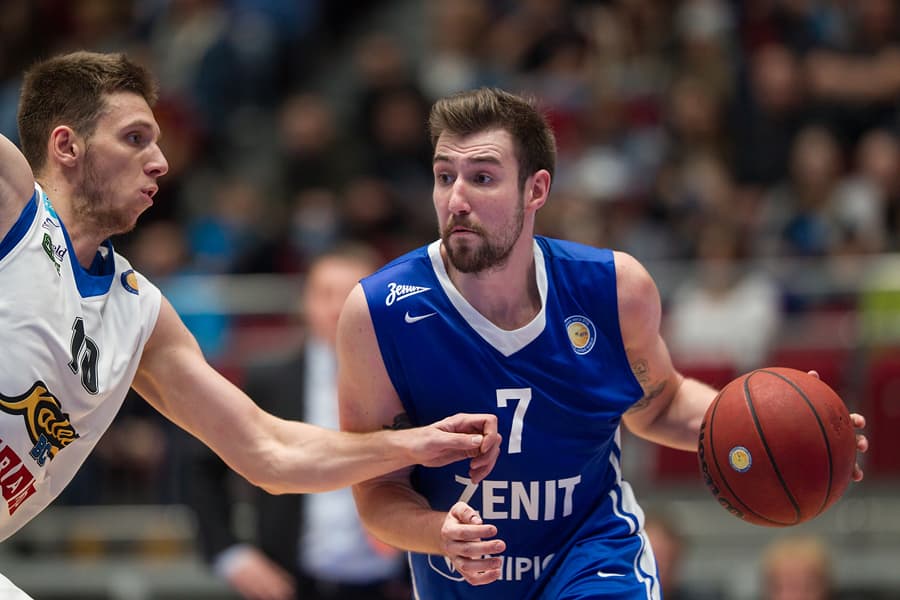
This was one of the biggest pick-ups of the summer. Karasev left for the NBA in 2013, leaving behind Triumph and his dad, head coach Vasily Karasev. But he didn’t get many opportunities to prove himself with the Cavs, averaging about 7 minutes per game and frequently getting sent down to the D-League.
Karasev hoped a move to Brooklyn would improve his fortunes, given the club’s Russian ties, but the young forward struggled there, too. Despite limited talent on the roster, the Nets’ dysfunction and poor chemistry made it difficult for Karasev to grow. Once Lionel Hollins took over as head coach, he barely saw the court. Karasev also suffered a knee injury, which effectively put an end to his stint in Brooklyn.
Failing to attract much interest from other teams, Karasev decided to return home to Russia and once again play for his father, who had moved to Zenit several years earlier. Karasev, Sr. promises to get his son–who’s pegged as one of the national team’s greatest hopes–back into peak condition and a leader on the court.
We should know soon enough whether or not the plan worked. For now, it’s clear that Karasev will get plenty of time and chances to prove himself.
Demonte Harper, Kalev
First Stint: Tsmoki-Minsk (2013-14)
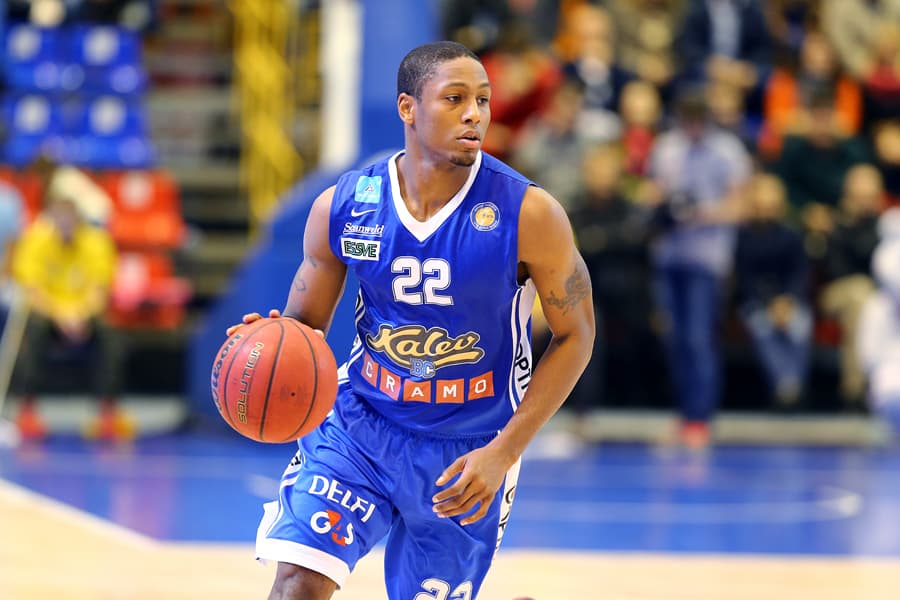
The American guard was a leader in Minsk during the 2013-14 season. A dangerous shooting guard, he played the role of slasher, using his athleticism, speed, and competitive drive to great effect. Harper averaged about 30 minutes per game with Tsmoki, proving to be one of Donaldas Kairys’s most important pieces that season.
Tsmoki wanted to re-sign Harper that summer, but the American guard’s contract demands ended up being too much. In addition to a big raise, Harper asked to be excused from Belarusian league games, even though Tsmoki didn’t enter the competition until the playoff stage and rarely faced tough competition. The front office refused to agree to the terms, cutting the American loose.
His next stop was at Italy’s Brindisi, before joining Poland’s Slupsk last season, where he was reunited with former coach Donaldas Kairys. Harper didn’t win any titles of awards during the past two seasons, but he did put up good enough numbers to attract interest from Kalev this summer.
Aliaksei Trastsinetski, Tsmoki-Minsk
First Stint: Tsmoki-Minsk (2008-14)
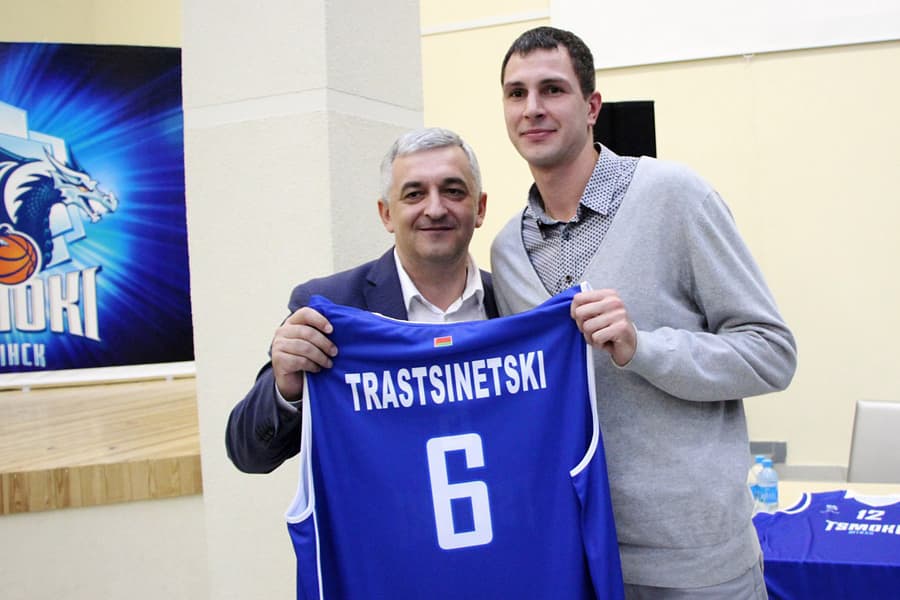
While we’re on a Belarusian kick, let’s talk about Minsk veteran, Aliaksei Trastsinetski. The forward played at Tsmoki from 2008-14, winning six domestic titles and five national cups. In 2014, he decided to try his luck abroad, choosing Russian Superleague club BC Ryazan. Despite playing a level beneath the VTB United League, Trastsinetski thrived in Ryazan, where he established himself as a team leader.
Impressed by his success, Tsmoki decided to bring him back this summer, successfully negotiating a contract with the national team player. He’s already played in two VTB United League games, including nearly 10 minutes in the win against Avtodor on Sunday.
Taylor Rochestie, Lokomotiv-Kuban
First Stint: Nizhny Novgorod (2013-15)

Rochestie spent two memorable seasons at Nizhny Novgorod, helping the club earn a spot among the VTB United League elite and advance to the Euroleague Top 16. A dazzling pick-and-roll combo with Artsiom Parakhouski and ability to create his own shot made Taylor one of Europe’s most highly-sought point guards. By the end of the 2014-15 season, practically every top club in Europe was interested in signing the American.
The Alphonso Ford Trophy winner ended up signing with Maccabi Tel-Aviv, two years guaranteed with an option for a third year. According to rumors, Rochestie was making $1 million per year on the contract.
But the move proved catastrophic for Rochestie. Questionable roster moves, coaching turnover, inner turmoil, and constant pressure from the fans and front office ruined the atmosphere in the locker room and contributed to a disastrous season. Maccabi didn’t just struggle in Europe, the club was also eliminated from the Israeli League playoffs in the semifinals.
As a result, Maccabi decided to start over fresh, replacing most of the roster, including Rochestie. But he didn’t need to wait long for an offer. Lokomotiv-Kuban also needed a fresh start and was more than happy to bring Rochestie and his experience in the League on board.
Frank Elegar, Enisey
First Stint: Kalev (2013-15)
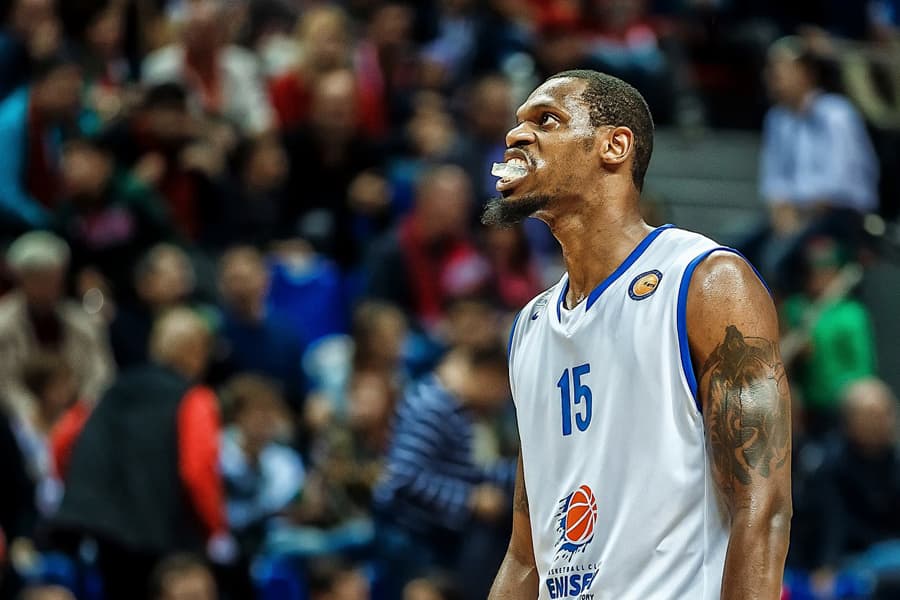
Elegar’s yet another player that earned star status thanks to his time in the VTB United League. Though he’d played at five different clubs in four countries (Germany, Turkey, France, Greece), the American big man didn’t earn his reputation as a double-double machine until he made the move to Estonia. Elegar got better and better each season, averaging an incredible 15 points and 11 rebounds per game in the 2014-15 campaign.
Not surprisingly, Elegar didn’t last long in Tallinn with those numbers. Milan came calling mid-season, hoping to upgrade its frontcourt for the playoffs. Unfortunately, issues beyond Elegar’s control made it tough for him to reach his full potential in Italy. The club struggled, too, failing to win any titles at home or in Europe.
Over the summer, Elegar decided not to tempt fate and look elsewhere (new coach Jasmin Repesa also wasn’t desperate to keep him), signing with Turkey’s Ankara. He averaged 9.8 points and 7.6 rebounds the following season. His numbers could have been even better, but he wasn’t surrounded by the most talent.
As a result, Elegar went searching for a new team in the summer of 2016. Enisey jumped at the chance to sign the former Kalev star, with Oleg Okulov seeing him as an ideal replacement for Tim Olbrecht.
Ian Vougioukas, Lokomotiv-Kuban
First Stint: UNICS (2012-14)

The 2011 Euroleague champ’s decision to join UNICS in 2012 shocked many in Europe. Not only did Kazan pick up one of the continent’s top talents, the club also agreed to very generous terms. But Vougioukas didn’t quite match expectations. During his best season in Kazan, the team didn’t go very far. When UNICS did win the Russian Cup and reached the Eurocup finals, Vougioukas’s role had diminished. Not surprisingly, president Evgeny Bogachev was content to let the Greek forward go after his contract expired.
Vougioukas ended up at Galatasaray next, where he only lasted half a season, finishing out the 2014-15 campaign in Germany at Ulm. The following year, he decided to sign with Zalgiris, lured by the chance to play in the Euroleague. The Lithuanians reached the Top 16, but a 1-4 start dug the team a deep hole in the next round. Sarunas Jasikiavicius was brought in to turn things around and enjoyed some success before injuries and Mantas Kalnietis’s departure ended Zalgiris’s hopes of a quarterfinal berth. The Greens did win a national title, however.
Over the summer, Vougioukas packed his bags again, switching the Euroleague for the Eurocup and a chance to play for Lokomotiv in the VTB United League.
Rob Lowery, Astana
First Stint: VEF (2014-15)
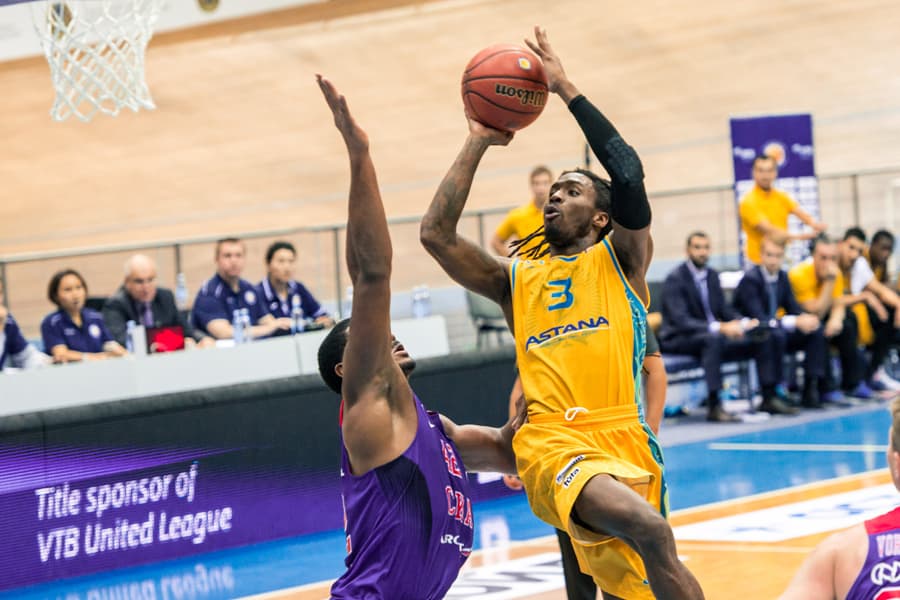
Rob Lowery made an immediate splash upon signing with VEF in 2014. Added during the season, he brought dynamic energy and smart decision-making to VEF’s offense. When plays broke down, Riga tended to give the ball to Lowery, hoping he could rescue the possession. He did a remarkable job, though it did hurt his assist totals. Lowery still managed to averaged four per game. And that wasn’t all. The American guard was also a fearless rebounder and sticky defender.
VEF would have loved to re-sign him, but Turkish Denizli snagged him, though health issues ended up negating the deal. Once healthy, Rob moved to Greece, then signed with Alba in the Bundesliga. He may have remained in Germany, but a new head coach meant he didn’t receive an offer. Astana, however, was happy to sign him, making Lowery a cornerstone of the team’s remade roster.
Siim-Sander Vene, Nizhny Novgorod
First Stint: Zalgiris (2009-10)
Second Stint: VEF (2011-12)
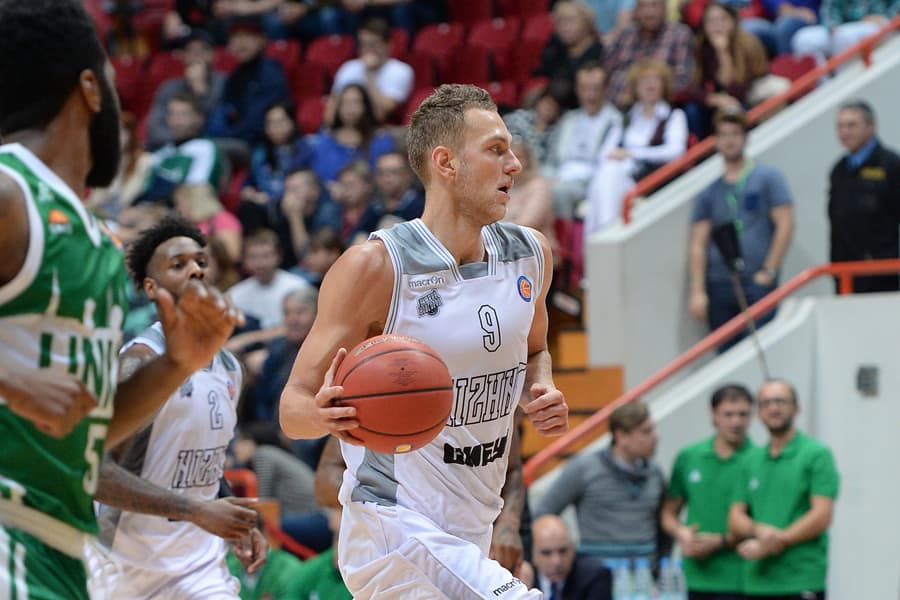
The versatile forward is seen as one of the most talented players in Estonia’s new generation. Brought up in a basketball family, he attracted attention as a kid and it didn’t come as a surprise when he won Nike’s international youth tournament with Zalgiris at age 17. Siim took his time adapting to pro basketball, twice playing in the VTB United League on two different loans: four games with Zalgiris in 2009-10 and two with VEF in 2011-12. Over the last three seasons, he’s started to come into his own, debuting in the Euroleague and helping the Greens win a national championship. Vene especially impressed at the 2015 EuroBasket, averaging 10 points and six rebounds. There was plenty of interest this summer with Nizhny Novgorod ultimately signing the 25-year-old to a one-year contract.
DeAndre Kane, Nizhny Novgorod
First Stint: Krasny Oktyabr (2014-15)
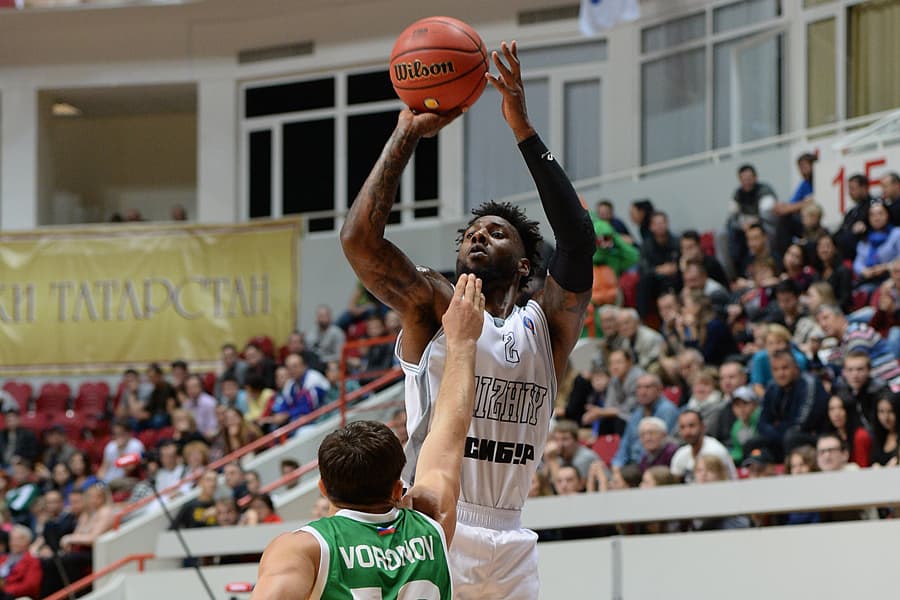
The American guard spent less than two months in the VTB United League. Despite a lot of hype over his arrival, Krasny Oktyabr ended up releasing him after only three games, where he averaged 11 points and six rebounds. After that, Kane joined Belgian Antwerp, recording an impressive triple-double in the FIBA Europe Cup. There was also a stint at Ulm where he starred in the Eurocup and a few months in the Promised Land with Hapoel Eilat. He didn’t last long at any one club, and was ready for a new challenge this summer. Nizhny is known for helping re-start careers. Perhaps they can do it again with Kane.
E.J. Rowland, Khimki
First Stint: VEF (2012-13)
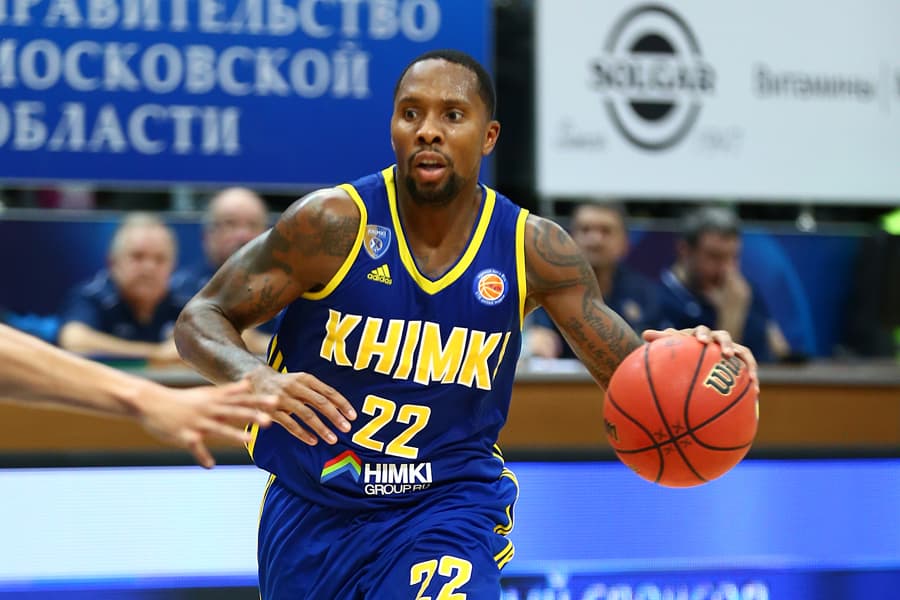
It’s still difficult to fathom how VEF managed to get Rowland to sign in 2012. Sure, he didn’t have the best season at Unicaja in 2011-12, but anyone could see his talent and passion for the game. But Malaga had a very specific style of play, and it clearly didn’t maximize Rowland’s abilities. In Riga, though, the guard put together a brilliant campaign, helping his club make its deepest run ever in the VTB United League playoffs.
Individually, Rowland won several awards, including the regular-season MVP. Of course, Rowland was able to command a much higher price on the free-agent market that summer, forcing VEF to let him go. Rowland went to Banvit initially, then joined Israeli club Hapoel Jerusalem, where he won a silver in the Ligat Winner Sal. This summer, Khimki brought in Rowland to provide Euroleague experience and fresh blood in the backcourt.
Janis Blums, Armands Skele, VEF
First Stint: Janis Blums (Lietuvos Rytas, 2012-13, second – Astana, 2012-13), Armands Skele (Kalev, 2011-13, 2014-15)
These two Latvian veterans returned home at a difficult time for VEF. Financial problems and concerns from sponsor about the club’s long-term prospects left the team on rocky ground. But the outlook got much brighter when Blums and Skele decided to support VEF in its time of need.
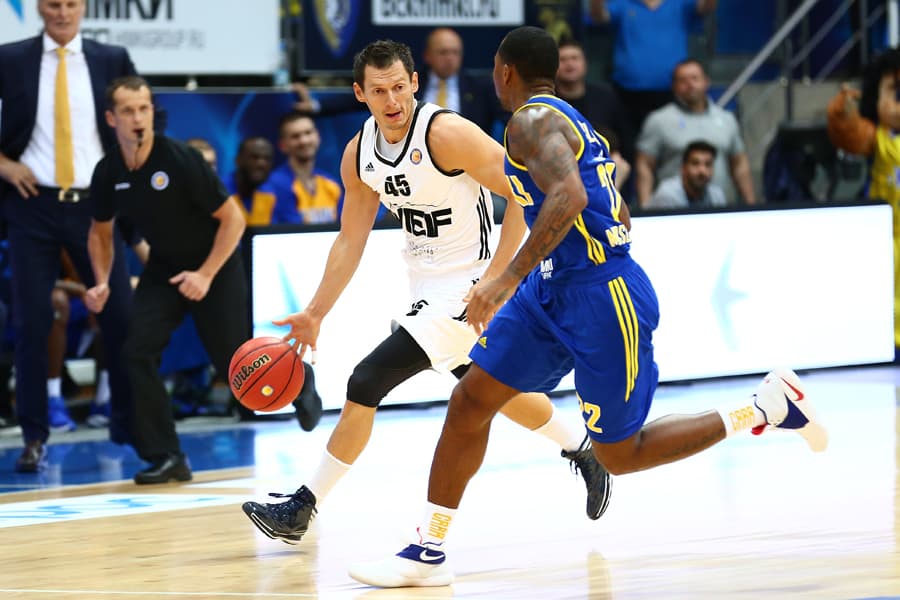
National team captain Blums is a cult figure in Latvian basketball circles. He’s played in Europe’s top leagues (Italy, Spain, Greece), where he always made a positive impact on his teams and won awards and titles. He’s yet to win a medal in the VTB United League, however. But both at Lietuvos Rytas and Astana, he brought experience, confidence, and reliable touch in the backcourt.
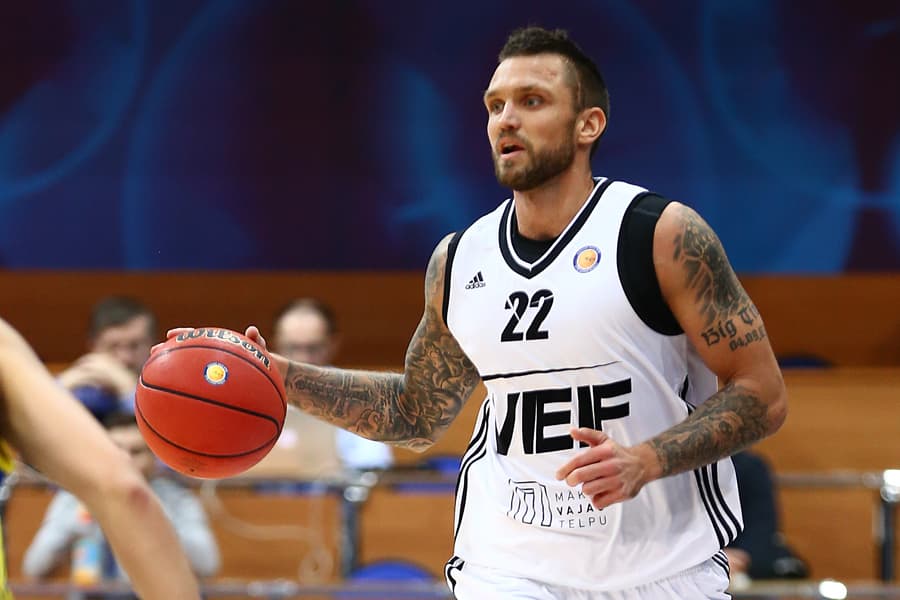
Skele fits a similar profile. He can handle the ball, on necessity, knock down the ‘3’, and drive to the basket. Skele is even more widely-traveled than Blums, competing in Poland, Belgium, Italy, Ukraine, Turkey… He’s still got some gas in the tank, too, as everyone saw in the recent win over Khimki. Judging by recent campaigns, it appeared that Skele’s career was coming to a close. After Kalev and the VTB United League, the 33-year-old guard signed with Barons and Valmiera in Latvia. But he’s been a pleasant surprise thus far in Riga and added intrigue to VEF’s prospects this season.





















